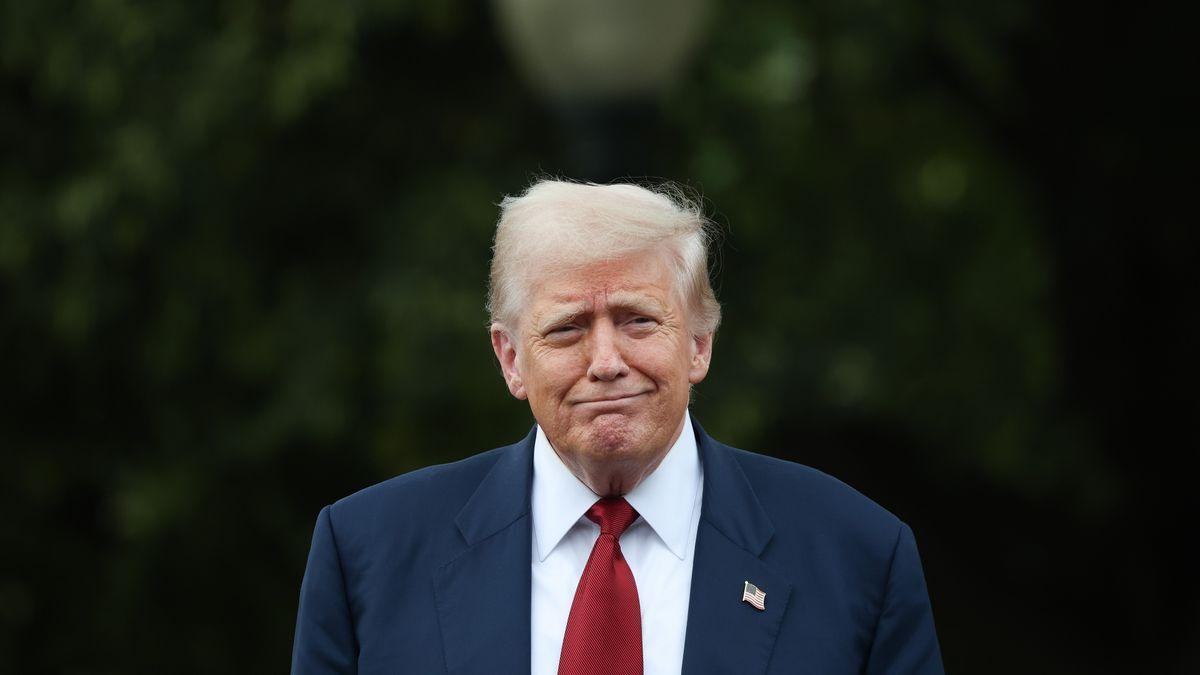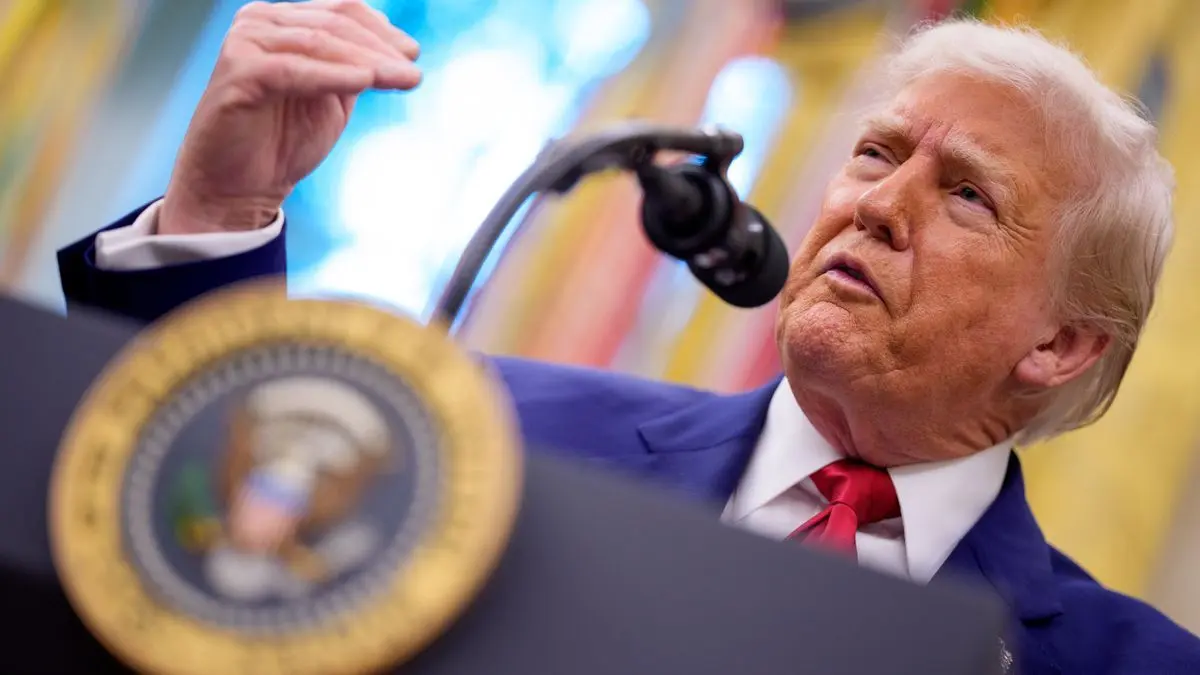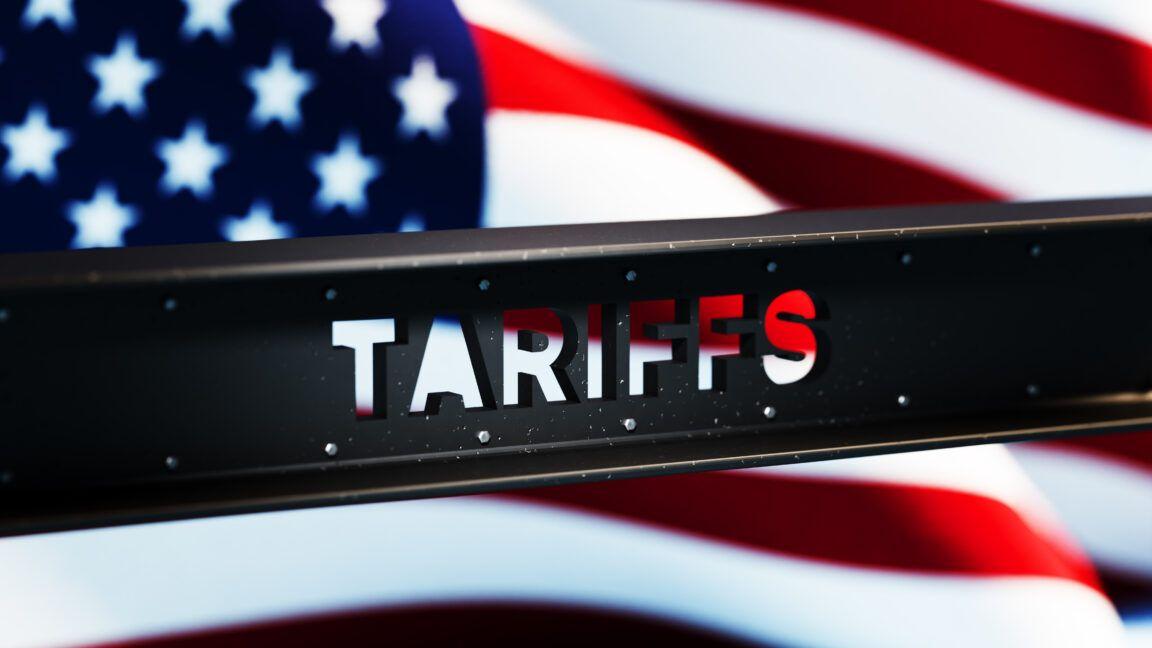Trump's Proposed 300% Chip Tariff Shakes Tech Industry, Raises Concerns for AI Sector
3 Sources
3 Sources
[1]
Trump mulls a 300% tariff on chips
U.S. President Donald Trump plans to introduce steep new trade duties on steel, semiconductors, and possibly pharmaceuticals within the next two weeks. What could bewilder the high-tech industry is that Trump is mulling up to 300% tariffs on semiconductors, according to Bloomberg. "I am going to have a rate that is going to be 200%, 300%," said Trump while talking to journalists onboard of the Air Force One, according to Bloomberg. The threat would certainly make PC enthusiasts wonder whether they will have to pay $1,999 for Nvidia's top-end GeForce RTX 5090 as they do now, or nearly $6,000 if the proposal comes into effect. Buy, maybe not at all? Trump's habit of announcing extreme tariff plans -- like 200% - 300% duties on semiconductors -- without actually putting them in place creates prolonged uncertainty that impacts the whole semiconductor supply chain. For chipmakers, electronics brands, and AI companies, the lack of clear timelines or rules forces them to make contingency plans that may never be needed, tying up resources and slowing real investment. This kind of drawn-out "will he or won't he" approach can push companies to make hasty shifts toward U.S. production, but it also risks leaving them exposed if the promised tariffs either change dramatically or never arrive. Trump has long threatened tariffs under a Section 232 investigation, which allows the U.S. Department of Commerce to investigate the impact of certain imports on national security, and then allows the adjustment of tariffs at the President's discretion. The Department of Commerce has had a Section 232 investigation underway for several months, but the timeline for the end result isn't yet known.
[2]
Trump to put tariffs on steel and semiconductor chips
President Donald Trump said he plans to put tariffs on imported steel and semiconductor chips as soon as next week, a report said. "I'll be setting tariffs next week and the week after on steel and on, I would say, chips," the president said on Friday to reporters aboard Air Force One as he travels to Alaska to meet with Russian President Vladimir Putin, Reuters reported. "I'm going to have a rate that is going to be lower at the beginning -- that gives them a chance to come in and build -- and very high after a certain period of time," Trump said according to the report. At the beginning of June, the president placed a 50% tariff rate on imported steel and aluminum. And just last week, he said he would put a 100% tariff on chips, adding that if companies build in the U.S. then "there is no charge." Trump made the announcement during a press conference in the Oval Office with Apple CEO Tim Cook. During the conference, Cook said the iPhone maker is investing an extra $100 billion in the U.S., bringing the total of its planned corporate domestic spending to $600 billion over four years. "But the good news for companies like Apple is if you're building in the United States or have committed to build, without question, committed to build in the United States, there will be no charge," the president added. "The higher you go, the more likely it is they build a plant here," President Trump said in mid-June at the White House in regards to a possible tariff rate hike on imported autos. The policy, part of Trump's "America First" agenda, aims to bolster domestic manufacturing by penalizing companies that rely on overseas chip production. For AI companies, the stakes are particularly high. Semiconductors are the backbone of AI infrastructure, powering everything from data centers to autonomous vehicles. Yet while Trump's semiconductor tariffs threaten global supply chains, years of U.S. buildout plans have left AI's biggest firms largely insulated. -- Joseph Zeballos-Roig and Shannon Carroll contributed to this article.
[3]
Trump 300% chip tariff shakes tech industry, Intel may find relief - Phandroid
Trump 300% chip tariff plans are shaking the semiconductor market, but Intel might be the exception. The president told reporters aboard Air Force One that tariffs on imported chips could hit as soon as next week, starting lower before climbing to rates as high as 200% or 300%. His goal is to push more manufacturing inside the US, pointing to new "AI factories" and fabs already under construction as examples of progress. According to Trump, "I'll be setting tariffs next week and the week after, on steel and on, I would say chips -- chips and semiconductors, we'll be setting sometime next week, week after. I'm going to have a rate that is going to be 200%, 300%." The PHLX Semiconductor Index slid more than 2% on the news, but Intel's stock surged nearly 6%. Reports suggest the Trump administration is weighing a direct investment in Intel, potentially using funds from the Chips Act. Such a move could provide Intel with much-needed capital to advance its 14A process and expand fabrication plants. Analysts at Bernstein noted government backing could help Intel weather years of losses before building a stronger customer base. This possible deal follows a meeting between Intel CEO Lip-Bu Tan and Trump earlier in the week, after the president called for Tan's resignation over alleged ties to China. The White House has downplayed the talks, calling them speculative, but investors are watching closely. For rivals like Nvidia and AMD, exemptions tied to TSMC's Arizona factories may soften the Trump 300% chip tariff impact. But the broader industry faces uncertainty as lawsuits and inflation pressures mount. For now, Intel looks like the rare winner in a market bracing for impact.
Share
Share
Copy Link
Former U.S. President Donald Trump announces plans for steep tariffs on imported semiconductors, potentially reaching up to 300%, causing uncertainty in the tech industry and raising concerns for AI companies reliant on chip imports.
Trump's Proposed Chip Tariffs: A Seismic Shift for Tech and AI
Former U.S. President Donald Trump has announced plans to introduce steep new trade duties on semiconductors, potentially reaching up to 300% within the next two weeks. This move has sent shockwaves through the technology industry, particularly affecting companies reliant on imported chips for their operations, including those in the artificial intelligence (AI) sector
1
2
.
Source: Phandroid
The Tariff Proposal
Trump's announcement, made to journalists aboard Air Force One, outlined a tiered approach to the tariffs. "I'm going to have a rate that is going to be lower at the beginning -- that gives them a chance to come in and build -- and very high after a certain period of time," Trump stated
2
. The proposed tariffs could start as soon as next week, with rates potentially climbing to 200% or 300%3
.This policy is part of Trump's "America First" agenda, aimed at bolstering domestic manufacturing by penalizing companies that rely on overseas chip production. The move follows a Section 232 investigation by the U.S. Department of Commerce, which allows for the adjustment of tariffs based on national security concerns
1
.Impact on the Tech Industry
The announcement has already had a significant impact on the semiconductor market. The PHLX Semiconductor Index slid more than 2% following the news
3
. However, not all companies are facing negative consequences. Intel's stock surged nearly 6%, with reports suggesting that the Trump administration is considering a direct investment in the company, potentially using funds from the Chips Act3
.For other major players in the industry, such as Nvidia and AMD, the impact may be softened by exemptions tied to Taiwan Semiconductor Manufacturing Company's (TSMC) Arizona factories
3
. Nevertheless, the broader industry faces uncertainty as lawsuits and inflation pressures mount.Related Stories
Implications for AI Companies

Source: Tom's Hardware
The stakes are particularly high for AI companies, as semiconductors are the backbone of AI infrastructure, powering everything from data centers to autonomous vehicles
2
. The proposed tariffs threaten to disrupt global supply chains and potentially increase costs for AI development and deployment.However, years of U.S. buildout plans have left some of AI's biggest firms largely insulated from the immediate impact of these tariffs
2
. Companies that have already committed to building manufacturing facilities in the United States may be exempt from the charges, as indicated by Trump's statement: "But the good news for companies like Apple is if you're building in the United States or have committed to build, without question, committed to build in the United States, there will be no charge"2
.Uncertainty and Long-term Effects
Trump's habit of announcing extreme tariff plans without clear implementation timelines creates prolonged uncertainty that impacts the entire semiconductor supply chain
1
. This approach forces chipmakers, electronics brands, and AI companies to make contingency plans that may never be needed, tying up resources and potentially slowing real investment.
Source: Quartz
The lack of clear timelines or rules pushes companies to make hasty shifts toward U.S. production, but it also risks leaving them exposed if the promised tariffs either change dramatically or never arrive
1
. This uncertainty could have long-lasting effects on the industry's strategic planning and investment decisions.As the tech industry braces for the potential impact of these tariffs, the coming weeks will be crucial in determining the future landscape of semiconductor production and its implications for the AI sector.
References
Summarized by
Navi
[1]
Related Stories
Trump's Proposed 100% Tariff on Foreign-Made Semiconductors: Implications and Uncertainties
07 Aug 2025•Business and Economy

US imposes 25% tariff on Nvidia and AMD AI chips bound for China, turning restrictions into revenue
15 Jan 2026•Policy and Regulation

Trump's Proposed Changes to CHIPS Act Could Hinder AI Growth and Raise Consumer Costs
17 Feb 2025•Technology

Recent Highlights
1
Pentagon threatens to cut Anthropic's $200M contract over AI safety restrictions in military ops
Policy and Regulation

2
ByteDance's Seedance 2.0 AI video generator triggers copyright infringement battle with Hollywood
Policy and Regulation

3
OpenAI closes in on $100 billion funding round with $850 billion valuation as spending plans shift
Business and Economy





